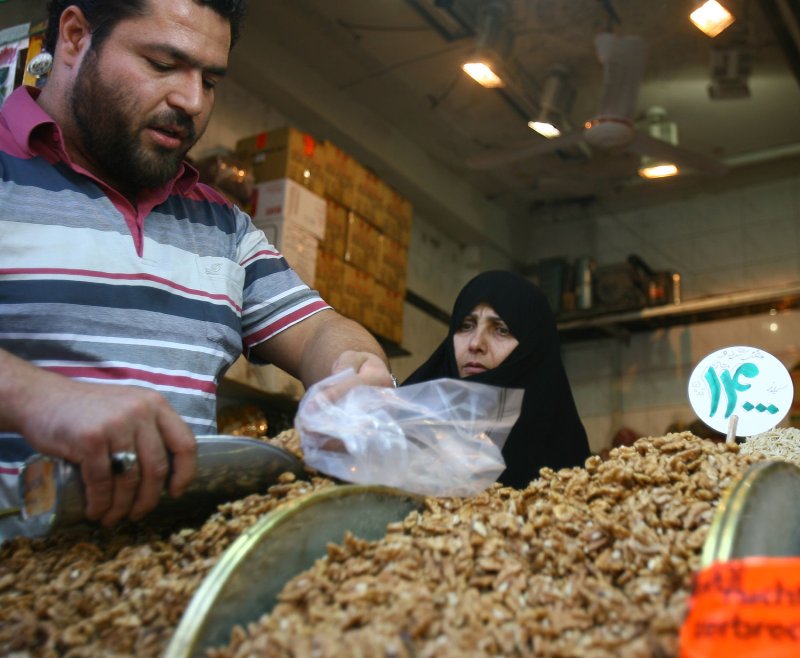An Iranian woman buys walnuts on the first day of the Muslim fasting of Ramadan on August 22, 2009. Muslims around the world give up from eating, and drinking from sunrise to sunset during Ramadan, the holiest month in the Islamic calendar. UPI/Maryam Rahmanian |
License Photo
HUNTINGTON, W.Va., Sept. 2 (UPI) -- Mice that ate a modest amount of walnuts as part of their regular diet had a significant decline in breast cancer risk, U.S. researchers say.
Study leader by Elaine Hardman of Marshall University's Joan C. Edwards School of Medicine compared the effects of a typical diet and a diet containing walnuts across the lifespan of the mice -- through the mother from conception through weaning and by eating the food directly.
The amount of walnut in the test diet was equal to about 2 ounces a day for humans, Hardman said.
The study -- funded by grants from the American Institute for Cancer Research and the California Walnut Commission, and published in the journal Nutrition and Cancer -- found the group of mice that had a diet that included walnut at both stages developed breast cancer at less than half the rate of the group with the typical diet.
In addition, the number of tumors and their sizes were significantly smaller, the study said.
Using genetic analysis, the researchers found that the walnut-containing diet changed the activity of multiple genes that are relevant to breast cancer in both mice and humans.
However, other testing showed that increases in omega 3 fatty acids did not fully account for the anti-cancer effect and found that tumor growth decreased when dietary vitamin E increased, Hardman said.















